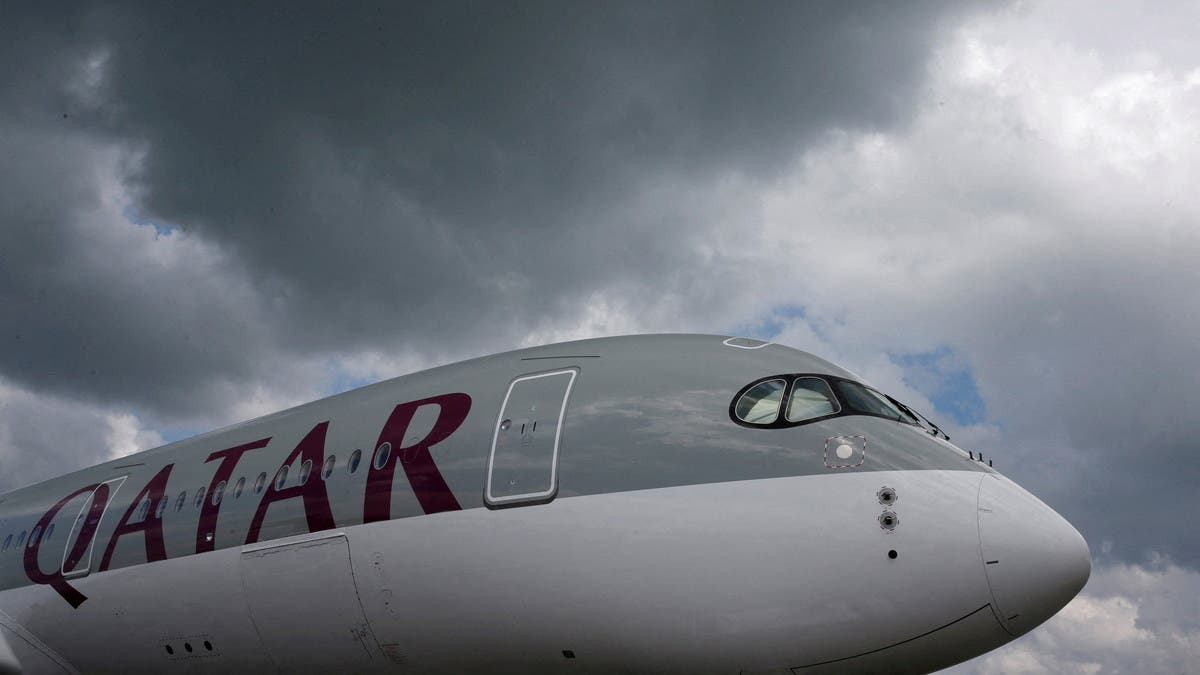Two high-tech Airbus A350 jets sit idle with their windows taped and engines covered in a floodlit hangar in the Gulf, hobbled by an international legal dispute between European industrial giant Airbus and Qatar’s national carrier.
For the latest headlines, follow our Google News channel online or via the app.
From a distance, the planes might seem like any other long-haul jetliners crowding the busy Doha hub. But a rare on-site visit by Reuters journalists showed what appeared to be evidence of damage to the surface of wingtips, tail, and hull.
The two planes, worth around $300 million combined according to analysts, are among 23 grounded A350s at the center of a $1 billion London court battle over whether the damage represents a potential safety risk, something Airbus strongly denies.
The planes were grounded by Qatar’s regulator after premature paint erosion exposed damage to a metallic sub-layer that provides protection to the fuselage from lightning strikes.
Other airlines continue to fly the A350 after European regulators declared the aircraft safe.
Reuters journalists were granted rare first-hand access after requesting the visit on the sidelines of an airline industry meeting in the Qatari capital, Doha, this week.
Sporadic surface flaws on the A350s viewed by Reuters included an elongated stretch of blistered and cracked or missing paint along the roof or crown of the jets.
In some areas, the protective lightning mesh that sits between the hull and the paint appeared exposed and corroded.
In other parts it appeared to be missing, leaving areas of the composite hull of the aircraft exposed to the environments.
The paint on the tail of one of the A350s emblazoned with Qatar Airways’ maroon Arabian Oryx emblem was pockmarked by cracked and missing paint that exposed the layer beneath.
Airbus and Qatar Airways had no immediate comment on Reuters’ findings.
Erosion
Airbus acknowledges quality flaws to the A350s, but denies they pose any safety risk because of the amount of backup systems and tolerance built into design.
Qatar Airways has argued this can’t be known until further analysis, and is refusing to take more of the planes.
Airbus has argued that some paint erosion is a feature of the carbon-composite technology used to build all modern long-haul jets – a necessary trade-off for weight savings.
It says the cracks are caused by the way paint, anti-lightning material called ECF and the composite structure interact. The tail does not all contain the ECF foil, prompting a technical debate over whether the damage there is caused by the same problem.
Amid hundreds of pages of conflicting technical court filings presented by both sides, Reuters has not been able to verify independently the cause of the damage.
Qatar Airways’ Chief Executive Akbar Al Baker and Airbus Chief Executive Guillaume Faury had the opportunity to mingle during the three-day industry gathering in Qatar this week.
Asked whether the relationship had improved after the event, which included the two men seated next to each other over dinner, al-Baker suggested the two sides remain far apart.
“On a personal level I am friends with everyone but when it comes to an issue with my company, then it’s a different story. If things were settled, we would not be still waiting for a trial to happen next year,” he told a news conference.
Faury said this week he was in discussion with the airline and reported “progress in the sense that we are communicating”.
One of the airline industry’s most senior officials voiced concerns after the Doha meeting that the dispute could have a toxic effect on contractual ties across the industry.
“It would be much better if we were dealing with friends that than dealing in the courts,” Willie Walsh, director general of the International Air Transport Association, told reporters.
Read more:
Qatar Airways will suspend 15-20 routes to adjust network for World Cup surge: CEO
Qatar Airways posts record $1.5 bln profits ahead of World Cup
Israelis to be allowed into Qatar for World Cup: Officials

 World2 years ago
World2 years ago
 World2 years ago
World2 years ago
 Entertainment7 years ago
Entertainment7 years ago
 World7 years ago
World7 years ago
 Entertainment7 years ago
Entertainment7 years ago






